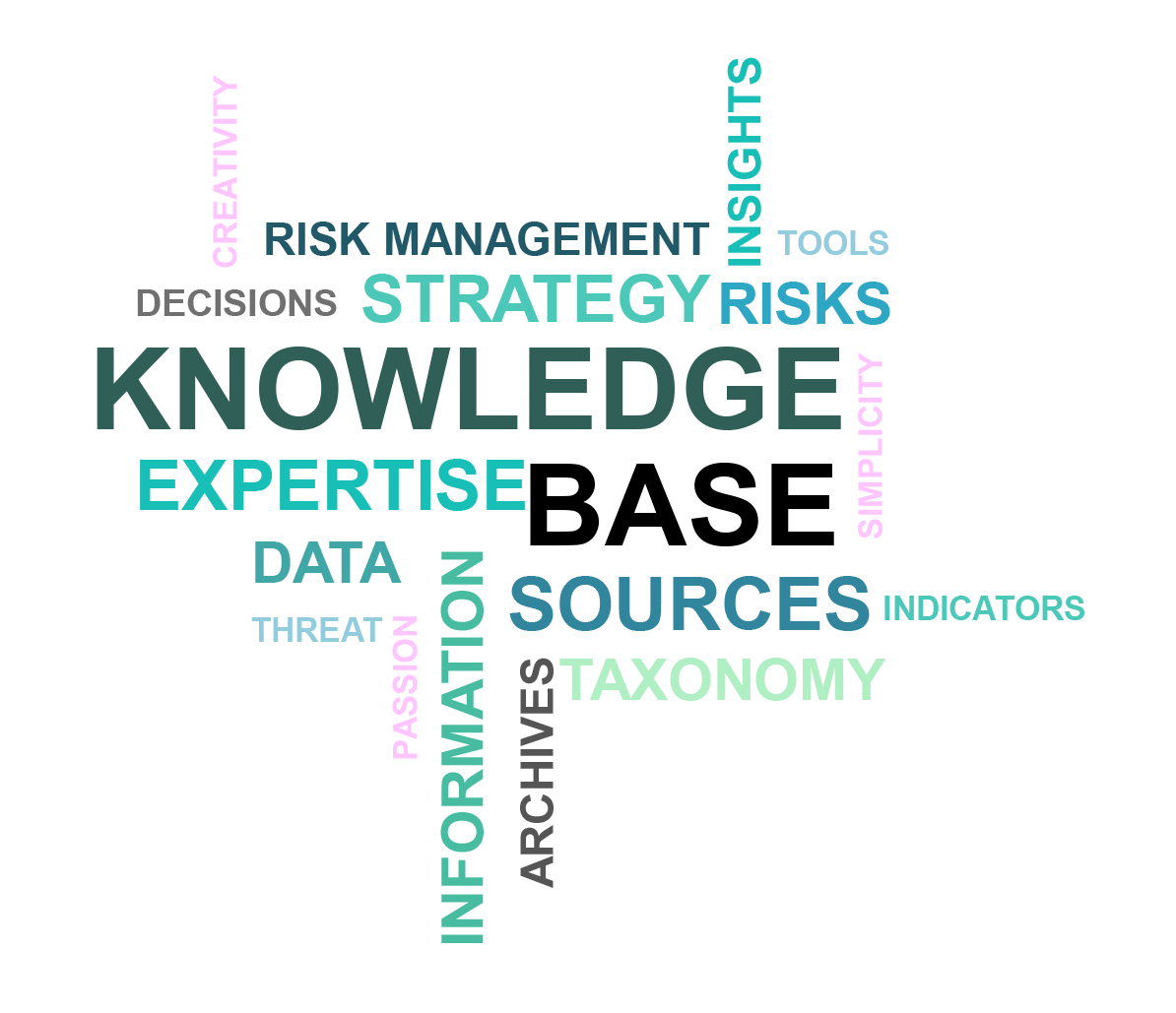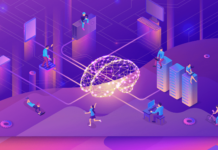Interview with Nicole Stracke, Co-Founder of Advanced Analytics
The use of Artificial Intelligence in analyzing big data is seeing a surge in many industries. Applying AI to security analysis, the German startup Advanced Analytics has made significant strides in streamlining and speeding up the processing of relevant information and data from social media and open sources.
Nicole Stracke co-founder of Advanced Analytics was a senior risk analyst for several years and consultant for a think tank in the Middle East, before getting involved in starting the Centre for Research and Analysis in EXOP, a market-leading German risk management consultancy company. She sat down with Tharawat Magazine to explain how their product untangles a seemingly endless chain of complexity and what it can mean for decision-makers in all walks of life.
Tell us the story about how Advanced Analytics came about. What was your catalyst and vision for starting it, and how was it achieved?
The daily core tasks of our analysis teams include 24/7 monitoring of security-related developments on a global scale, conducting on-ground threat analyses, providing forecasts on security developments, as well as preparing presentations, briefs and reports for companies that are operating mainly in high-risk areas. The constant need to improve our analytical capabilities was the key driver for starting Advanced Analytics. Our clients demand access to timely, relevant information – real time is preferred, they need on the spot analysis, content and knowledge visualized in charts, maps and timelines, and not in a 50-page written report. Earlier our analysts and operators were confronted with a constant information overload due to an influx of data from open source media (OSINT) and social media (SOCMINT); there was no intelligent system in place to sufficiently evaluate and manage the collected data or processed information. With time, valuable information was lost which was exceedingly frustrating as good analysis improves tremendously with people’s growing experience and richer data sets. As a result, we began to look into acquiring big data analysis tools and intelligent data management systems, hoping to find a flexible and lean solution. However, most systems we evaluated were either too complex in their application, of limited usage for our field, or simply overpriced.
What exactly does Advanced Analytics do differently?
We developed a semantic intelligence system that is capable of merging, analysing and visualising all sorts of data and formats, including structured and unstructured text, video or audio files. We have focused on collecting data and analysing intelligence and security issues as this is our field of expertise but the underlying logic of our system can be applied to other fields such as compliance, recruitment and so on.
Our system reflects the classical workflow of analysts: Data Collection, Evaluation, Analysis and Reporting. The system crawls, identifies, collects, evaluates and analyses high volumes data in real time; it operates with multi-lingual data, understanding the meaning of language and therefore the content of texts. The system also facilitates the analysis process as it clusters and categorises the provided information, creating analyses, specific alerts and notifications, in addition to reports.
On the content side, the system deals with questions about the development of militant groups, in terms of modus operandi, target policy or changing area of operation. We can also compare global crime trends, analyse social media trends in multiple languages, and analyse sources of information and quotes. Particularly unstructured data, which includes social media, for example, Facebook, Twitter and Instagram, is an essential element in our platform. By now, unstructured data constitutes about 80% of all global data with a rising trend. This is posing a huge challenge for ordinary, existing analysis tools that are not working with artificial intelligence.
What do Advanced Analytics’ operations and activities look like? What kind of customers does it serve and where does it operate?
We operate two different systems: Analytics+ and SHORTCUT.ONE. Analytics+ is a customer, in-house system that is very powerful in its analytical capabilities. It is installed on clients’ existing server structures and serves as knowledge architecture, integrating and centralising all required internal and external data. It is used in both intelligence work and criminal investigations, it analyses movement patterns deriving from CCTV data and internal databases, it detects irregular patterns of phone call and bank relations among suspects and it easily merges this data with social media and open source information. Analytics+ can also be used in fraud detection, screening millions of mails for irregularities and correlations. It is a highly customised and specialised system in terms of desired content, functionalities, design, reporting and granularity of the user management.
SHORTCUT.ONE, in contrast, is a more standardised application; we wanted to offer a multilingual intelligence platform for everybody that can be used by students, analysts, journalists, corporate security divisions or project managers who may not have a large budget to pay for existing tools that are present on the market. The basic version of our platform is free of charge and accessible via a secured web page. It includes data collection, analysis, basic reporting and the alerting function, in addition to the global incident reporting. We are currently finalising the development of our beta version but plan to integrate many more interactive analysis tools over the upcoming months. In the next version, the user will be able to modify and integrate their own data sets and share relevant information with other users. Our goal is to create the first semantic intelligence platform that not only helps every analyst to improve analysis work but also connects information and people at a global scale.
What is unique about the service that Advanced Analytics offers, and what is your plan to compete with existing service providers?
The teams’ diversity of having long-standing analytical expertise in the intelligence and security field, combined with skills in cognitive intelligence and deep natural languages processing, is certainly a huge advantage for us. More importantly, we do have a good understanding of the market requirements as we have worked for more than a decade in the security and intelligence field; in fact, we developed the tool because we felt there is a need for it.
We can use the system both as an early warning system and as a comprehensive analysis tool. We identify risks in real time and notify users if a significant event occurs, users can create subjects of specific interests and let the system monitor the ongoing developments to detect new events or trends around the clock.
The system also merges high volume of different data in multiple languages, including Arabic. Understanding languages is particularly important for any kind of media analysis; different from many other platforms, it does not just translate the text, the platform actually analyses the grammatical syntax of sentences, thereby enabling the tool to better understand the meaning behind the words and the content.
The user has a lot of flexibility in the managing of sources and data. They can merge and integrate their own data and know-how and the system allows analysts to modify and further enrich the final visualization results before creating the report. The high degree of flexibility was very important to us, at the end, the system should assist the user in every step of the analysis workflow and not dictate an unchangeable, final result.
What differentiates us mostly from other providers is certainly our decision to offer a basic version of our intelligence platform- SHORTCUT.ONE – for free; anybody who registers can access and use it. We want to give interested people the opportunity to analyse political and security development on a higher analytical level and also create a platform where everybody can interact. I noticed that particularly in the Arab world, young people are very much interested in ongoing security developments and public political debates, not only in the Middle East but also in Europe and the US. So we decided to expand the semantic capabilities of the platform to Arabic language, which was not an easy task given the complexity of the language.
[ms-protect-content id=”4069,4129″]
What was it like developing the artificial intelligence technologies that play a role in your company and what were the challenges that you faced in developing it?
I think the major task was and still is to meet the high expectation of clients working with the intelligence platform. Everybody expects some sort of miracle from artificial intelligence systems; we first tested the platform with academics and analysts who are quite demanding on the quality of the analysis output. Accuracy, speed and relevancy of information mattered and we had slowly to teach the system to understand our requirements over time.
Tell us your thoughts on the present and future of advanced intelligence gathering. What role do you expect Big Data and artificial intelligence will play in companies?
The ongoing trend of digitalization of large volumes of data is confronting everyone of us with a permanent influx of data and as result, a constant overload of information; more and more data are being processed in real time. The internet of things, smart cities, and online platforms are no longer mere concepts but have become reality. Data are extremely valuable and having access to information is the key for future growth. Being able to actually analyse and understanding the data is therefore a crucial asset for business success, no matter which field one is working in.
The logic is straightforward: The more information that I collect and analyse about my field of business, operational procedures, performances, market developments and so on – the better I can understand the operational context and am capable of acting and reacting accordingly. We are in urgent need of intelligent tools that are capable of analyzing the ever-growing data volumes. Many intelligent tools are available on the market but often only for an exclusive circle. We want to change this.
Why is it important that companies incorporate data analytics into their businesses?
Gaining accurate data and analyzing information is an essential base for decision-making. Data analytics help to extract the most relevant information; they identify hidden patterns and previously unknown correlations that can be used to make more efficient decisions. Some data analytics models use forecasting and statistical analysis to identify trends and detect vulnerabilities.
Data analytics have already entered many fields of business: online retailers analyse behavioural pattern of shoppers to create user profiles, what product lines do users look at, for how long they stay at a specific page or view a particular product.
Data analytics are also used to understand sales and revenue trends: larger stores are already analyzing CCTVs and merging images with merchandise systems and open sources information in order to understand why sales might go up or down in specific departments on certain days or hours.
Sentiment analysis in social media is an increasing trend and used to adapt marketing strategies: Large corporations, for example, that enter new markets with the latest product can evaluate whether or not the product will find acceptance among the broader public and adjust its marketing strategies.
So, I am quite confident that it is only a matter of time until data analytics will pervade all fields of business, sooner or later using artificial intelligence tools will be an integral part of our future.
Tharawat Magazine, Issue 29, 2016
[/ms-protect-content]















